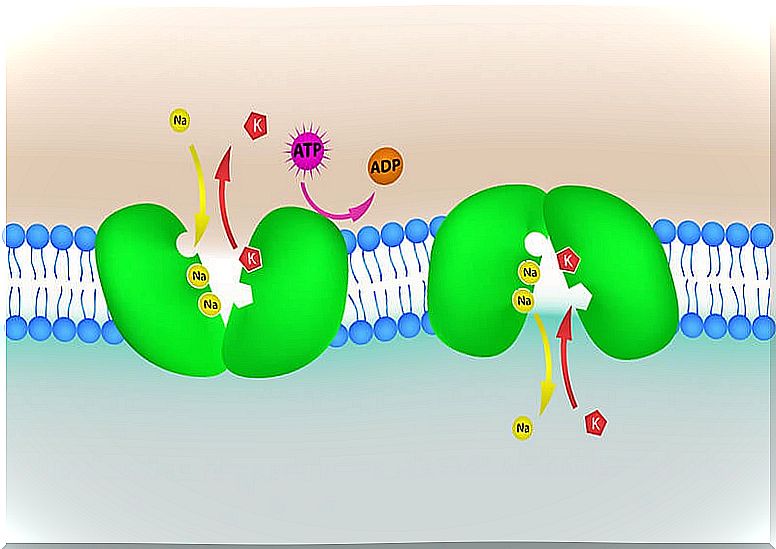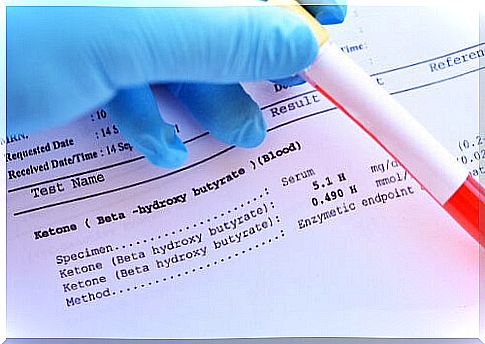Symptoms And Causes Of Hyperkalemia
Hyperkalemia is a pathology characterized by potassium levels above normal. If they were below, we would speak of hypokalemia.
Analytical ranges usually mark that the normal level of this electrolyte should be 5.5 mmol / L. Patients with levels higher than mentioned will have hyperkalemia.
To better understand and understand this pathology, it is important to expand the concepts of the affected electrolyte, potassium.
Potassium and its functions in the body

Potassium is a chemical element p articipa in numerous reactions of the body, from muscles to the brain.
It is both a macromineral and an electrolyte. Electrolytes, such as chlorine or sodium, have an important function in the body: that of participating in the balance of pressure and concentration of substances inside and outside the cells.
In addition to these, they also perform other functions such as:
- Bone growth and structure.
- Contraction and protein synthesis.
- Nerve transmission.
- Osmotic balance.
Symptoms derived from hyperkalemia
Normally, when a person has high potassium levels, they usually do not experience any symptoms. For this reason, most cases of hyperkalemia go unnoticed.
However, on other occasions, different signs may appear. Whether one or the other appears depends on the severity of the hyperkalemia and how quickly it appears. The first ones that usually appear are related to muscle activity.
In this sense, a patient may feel tingling, muscle weakness or tremors in the extremities. The development of paresthesia in the fingers and toes is also common. Paresthesia is an abnormal sensation of tingling, heat, or cold on the skin.
In the most severe cases, the patient may suffer other symptoms that affect the activity of the heart, such as cardiac arrhythmias. The reason for this is that potassium is also necessary for the proper functioning of the heart. So, in short, hyperkalemia will affect many body systems and is dangerous.
Causes of hyperkalemia

The most common cause of hyperkalemia is kidney failure. In this situation, the kidneys do not excrete potassium correctly, so this electrolyte increases in the blood.
However, there are also other factors that contribute to the development of this pathology, such as:
- Increase the consumption of foods rich in potassium : it usually contributes, but it is very rare that an excess of these foods causes hyperkalemia to be experienced.
- Adverse drug effects : some drugs affect kidney function.
- Metabolic acidosis.
Treatment of hyperkalemia

The doctor will indicate a treatment in order to lower the levels of this mineral. To do this, he will focus on treating the triggering cause.
Different treatments will be prescribed depending on the severity of the hyperkalemia. In this sense, a patient with a moderate increase in potassium levels will be prescribed the administration of potassium exchangers or diuretics. You may also need dialysis.
When it comes to hyperkalemia, whose value is above 6.5 mmol / L without changes in the electrocardiogram, salbutamol or sodium bicarbonate are two drugs that effectively improve the situation.
Finally, when the above situation occurs, and also the electrocardiogram is altered, medications that protect the heart should be administered, such as calcium chloride.
Other facts about hyperkalemia
Hyperkalemia, as its name indicates, is an increase in blood potassium levels above normal, 5.5 mmol / L. Normally, the main cause is usually that the kidney does not work properly.
Therefore, when indicating a treatment, diuretics are usually administered to enhance the function of these organs. In the most serious cases, in which the heart is affected, the administration of myocardial protective drugs such as calcium chloride is recommended.
Despite all the information previously provided, do not hesitate to go to the doctor if you have signs of this disease so that the specialist can recommend an appropriate treatment for your case.








